Marylhurst University Musical Instrument Show
For those who missed it:
The following photos were all taken before the public was allowed in, so the tables are not fully set up, but you can see the size of the room, and some of the instrument displays. I believe there were 80 tables, and each table had one or more makers exhibiting, so probably in the neighborhood of 100 makers. Possibly ten were violin-family makers. One was a maker of wooden flutes and drums. Usually there is an orchestral harp maker there, but he was not there this year. There were several mandolin and ukulele makers, some makers of middle-eastern or South American instruments, one or two banjo makers, and all the rest were either guitar-makers or vendors selling materials to makers.
Once the doors were open, I am told we had about 300 visitors the first day, and 500 the second day. I don’t know how accurate those numbers are, but it definitely seemed more crowded the second day.
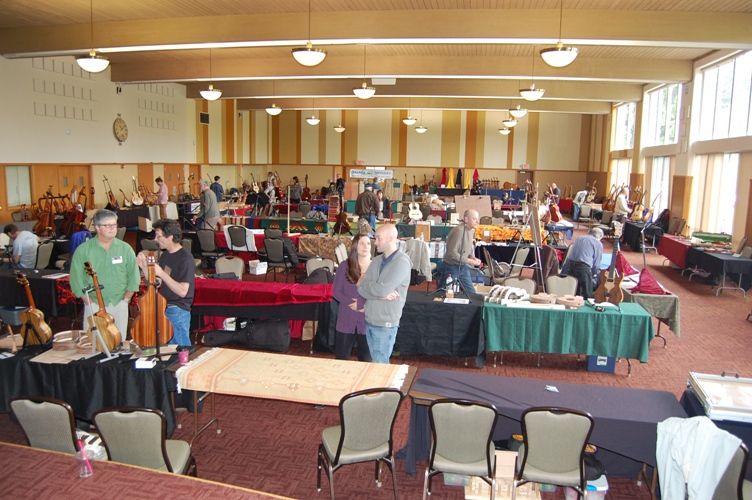
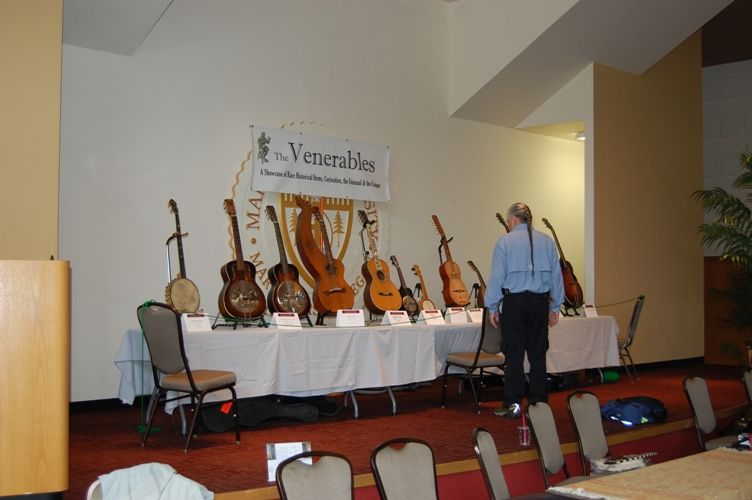
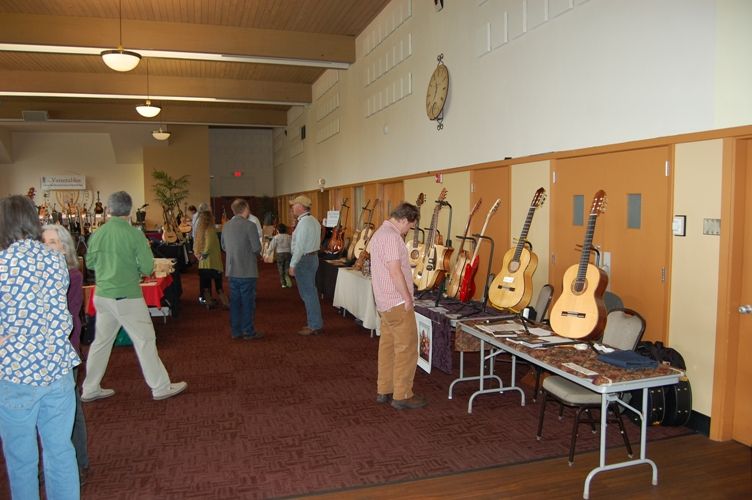
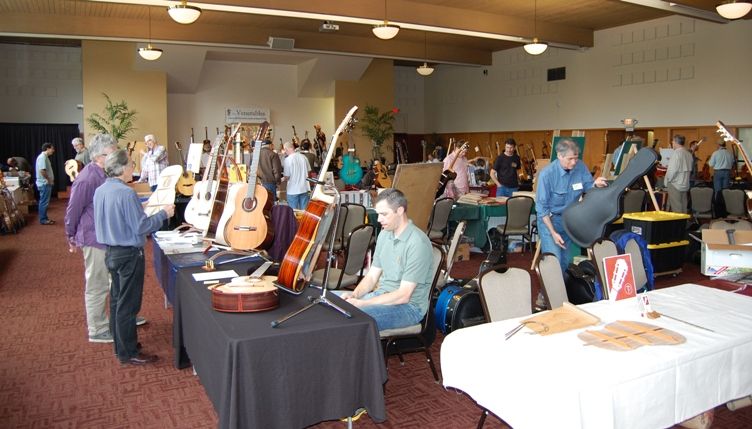
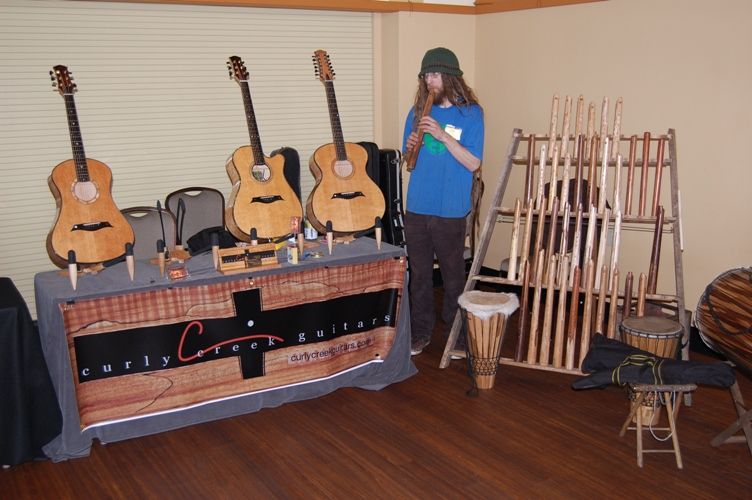
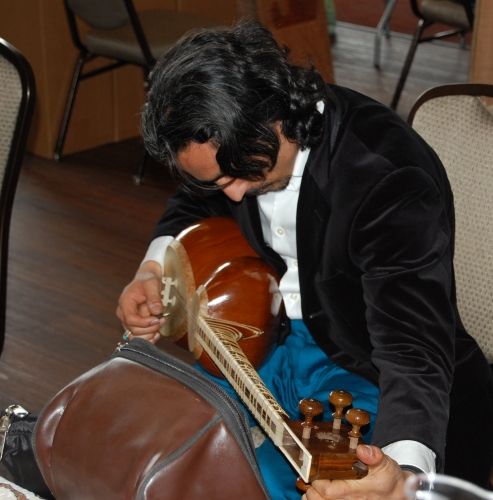
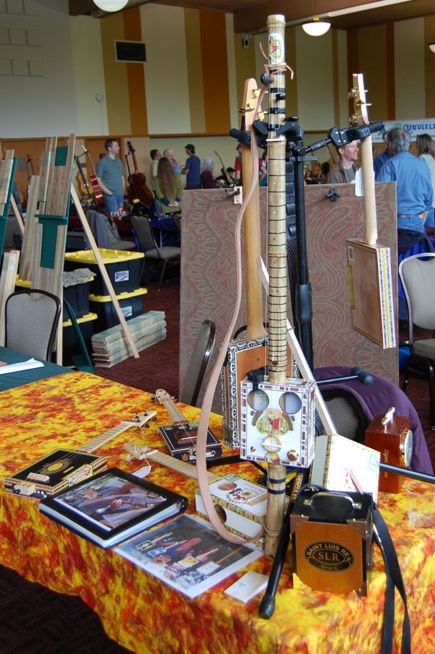
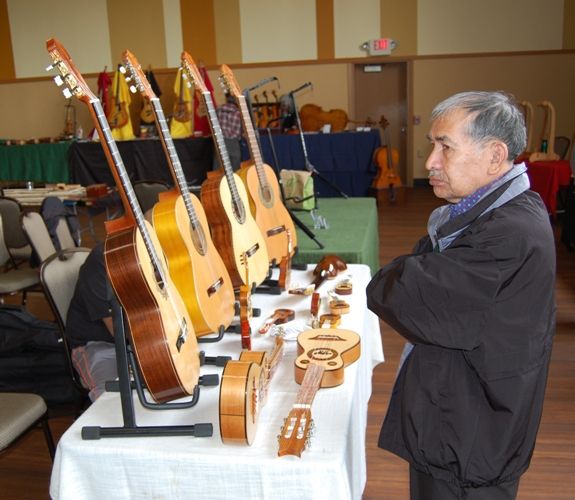
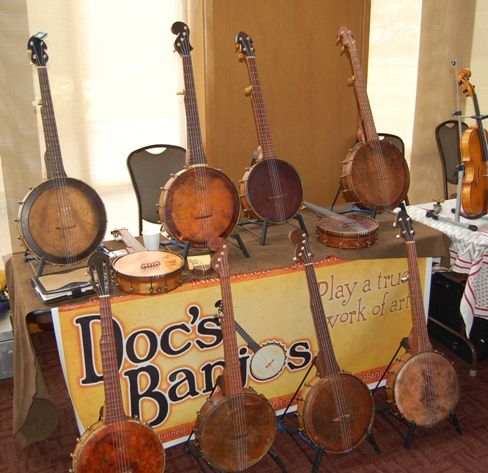
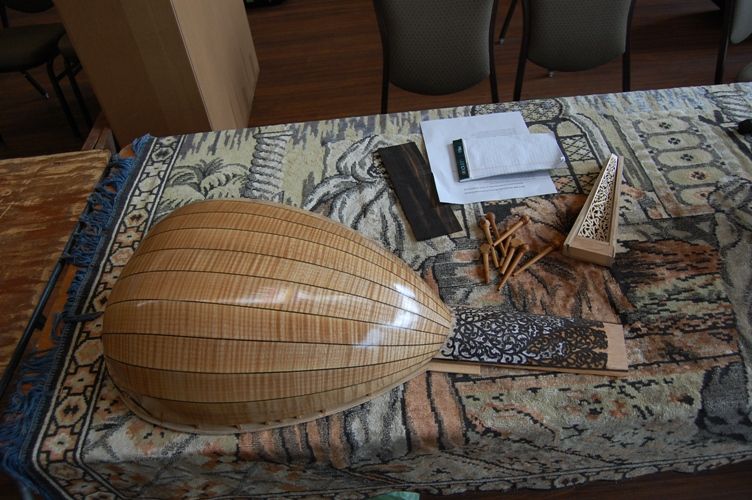
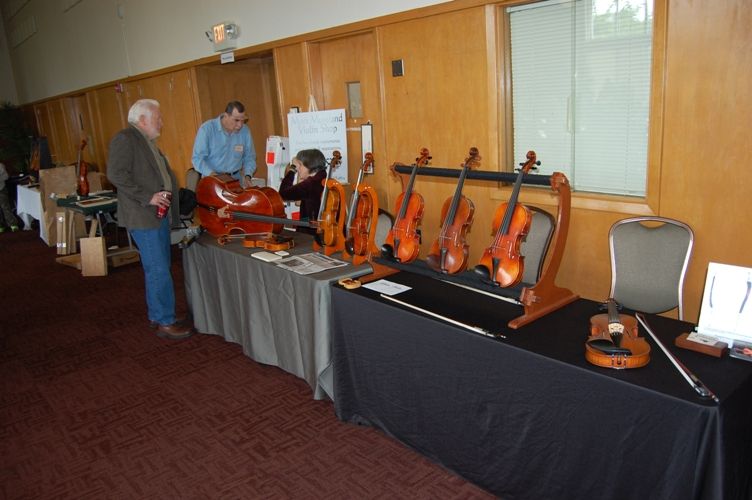
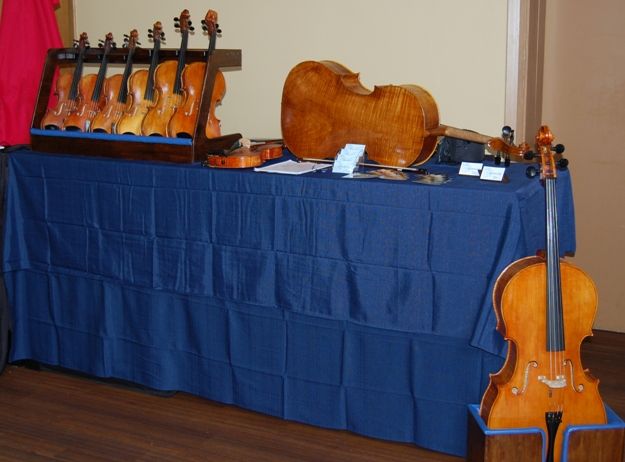
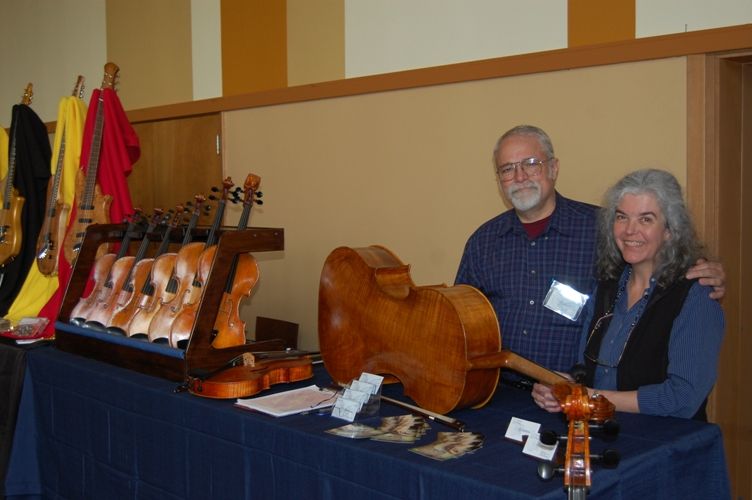
No sales at our table this year, but lots of interest, and several good players. A good weekend all the way around. The one-piece-back cello, of Oregon Big-leaf Maple was very popular, as was the five-string fiddle and the Lion-head Viola. I did not have a double bass there this year, but several people asked, so I intend to do so next year.
We had a very pleasant visit from violin-maker Kenneth Pollard and his lovely wife (who took the photo below), both of Nampa, Idaho. He and I have corrresponded in the past, but this was a first “face-to-face” meeting. Hope to see them again sometime…maybe at the next show, if not before.
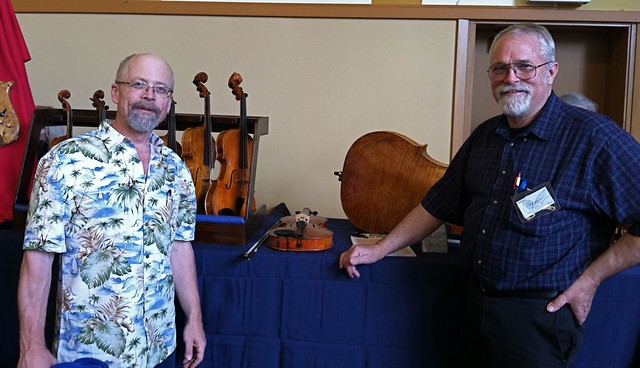

 Follow
Follow
